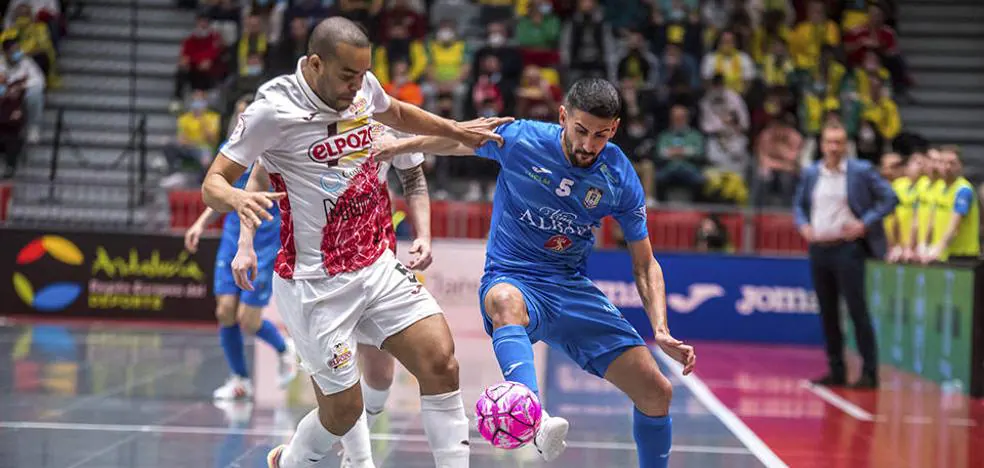The return of works of art from Benin, the pardon of the harkis of Algeria, the withdrawal of French troops from Mali are just some of the recent milestones that marked France’s relations with its former colonies during the mandate of President Emmanuel Macron. Now, shortly before the elections in which he will bid for a second term, these decisions could influence his image as his leader and be used as banners by his contenders.
The French colonial past resurfaces, as usual, ahead of the presidential elections. This time, it reappears as a key point in the final stretch of Emmanuel Macron’s mandate. A period in which France’s relations with its former colonies were continuously present on the president’s agenda.
At the start of his term, Macron promised a turning point in the way African affairs had been conducted. He ensured a change of dynamics in which he put African youth as a priority.
“Macron sought to dialogue with African youth and sought precisely to insist on his youth, on the fact that he had not known the time of colonization because he was born later. He then tried to project an image of novelty, of breaking with the past, ”says Aymeric Durez, a specialist in French foreign policy and military interventionism in Africa.
In 2017, he visited the Burkina Faso capital, Ouagadougou, as reported by the portal ‘The Conversation’, where he addressed the country’s youth, seeking a more horizontal dialogue that would appeal to civil society. “I did not come here to tell you what France’s African policy is (…) because there is no longer any French African policy,” said the president.
Since then, Macron has taken his own initiatives against Africa. Some more symbolic, such as ending the CFA franc during his visit to the Ivory Coast in 2019, or more recently he returned 26 works of art to Benin that had been looted by French colonial troops in 1892. Others, on the other hand, were more closely linked to security issues such as the announcement of the withdrawal of French troops from Mali in the Sahel.
However, pursuing the goal of turning these relationships around, he came to take attitudes considered by some to be paradoxical.
“He had certain contradictions in his way of speaking to the African heads of state, of demanding certain efforts from them, sometimes a tone that could be criticized and associated with a certain paternalism. Also regarding the changes of government, the coups, because he has been very harsh against the military who took power in Mali, in particular, while he has finally accepted the seizure of power by the president’s son Idriss Déby , in Chad that was done in a non-constitutional way”, assures Durez.
Jean-Claude Félix-Tchicaya, a researcher at IPSE, has a similar reading, affirming that Macron “oscillated between condemning dictatorships, totalitarian regimes and despots, but at the same time he had rapprochements with the same or similar dictators and despots.” An inconsistency that he, he assures, had “an impact on the daily life of hundreds of thousands of Africans.”
Now, his successes and failures, according to experts, could influence the image of the president in the elections. In addition, these would function as a political tool for his opponents.
The end of Operation Barkhane in Mali: a growing rejection
In June of last year, Emmanuel Macron announced the end of Operation Barkhane, which had been present in Mali since 2014 with the tacit objective of fighting jihadism.
That is one of the decisions that, according to Viviane Ougou, an expert on the Sahel and founder of ‘Gateway to Africa’, could harm Macron as a leader.
“If we want to talk about failures, something that has had an impact on his electoral score, although I think that right now after the war in Ukraine, it remains in the background in the elections; it is Barkhane, the fact that they have broken ties with a country where (France) has been working for more than ten years,” he says.
The presence of the French forces in the Sahel generated a cost to the country of almost one billion euros a year, at the same time, dozens of soldiers died in combat. One of the reasons why the rejection of the French against military intervention in Africa has increased.
“All the people who have lost their lives in the Barkhane, we cannot say that they have done it for nothing. In the end, they have tried to do good. But, that this has had a positive effect in the long term? What we see it’s a breakdown in relations between the two countries and the fact that there is so much more violence and instability in the whole region than there was before,” says Ougou.
However, despite the fact that on February 17 the president confirmed the withdrawal of French troops and those of its allies from Malian territory, he assured that they would not leave the area. Furthermore, he announced that the task of fighting terrorism would continue in Niger.
A determination that generated rejection both in France and in many African nations. “The French military interventions in the Sahel have very clearly and profoundly complicated France’s relations with many of the countries in the region,” notes Florent Frasson, an expert on international security and Africa.

On the other hand, the withdrawal of the French military forces was celebrated by Malian citizens. What for analysts accounts for the increased rejection of certain African countries to France’s military interventionism. A repudiation that also extends to part of the French population that demands the withdrawal of the entire operation.
Looking ahead to the elections, the loss of French influence and the expansion of other powers could affect the president. “I think what happened in Mali can affect him. French forces are to withdraw from Mali. While the Government of Mali, the military that took power in 2021, called in Russian mercenaries to ensure their protection. So this is something that the other candidates will surely criticize. His insistence on maintaining the military force in Mali”, concludes Durez.
The advance of the Russian relationship with Africa is, according to Frasson, a sign of French weakness that, “at the same time testifies to an increasingly strong rejection of the populations of these States towards the former colonist and, in this sense, this image of colonizer has not disappeared from the minds of African countries and their populations”, he indicates.
The request for forgiveness to Algeria: what effects does it have on Macron’s image as a leader?
“I want to show our appreciation to the fighters. We will not forget them. I apologize, we will not forget,” Macron said in August of last year. Thus he became the first president to show a gesture of this caliber towards the harkis, the Algerians who fought on the French side in the Algerian War.

Nearly 200,000 men were recruited during the conflict that lasted between 1954 and 1962, later abandoned by France and faced reprisals by Algerian forces. Some acts for which Macron accepted responsibility for his country.
Shortly after the elections, there was the commemoration of the 60th anniversary of the Evian Agreements that ended the conflict. A moment that puts Algeria as a topic of interest prior to the elections.

“It is an obviously relevant issue for the elections in different dimensions. An electoral one directly (…) a good part of the pieds noirs voters, that is to say, French born in Algeria, and who have had to return to the metropolis are going to participate in the elections. These constitute a non-important but not insignificant part of the electorate”, says Frasson.
Beyond the influence it has on the electorate, the memory of the war in Algeria divides the French.
“The Algerian issue is a foreign policy issue but also an internal policy issue in relation to the memory of people who have been linked in France to the war in Algeria. It is a memory divided between different categories of French and the subject of Algeria, surely, is going to be a subject of some controversy of debate in the electoral campaign”, sentences Durez.
What role do relations with former colonies play in the different presidential campaigns?
“It is a present issue but indirectly,” says Frasson. Facing the elections, the candidates, from different sides, take the diverse imaginary of the French against their former colonies as a banner. With a first topic that touches the fibers of a part of the electorate: migration.
“All the candidates talk a lot about migration, about how to manage migration flows, and it is an open secret that when it comes to migration, the target of these speeches is not migrants from Eastern Europe or Northern Europe, but rather people who come from the African continent”, he adds.
For his part, Durez also considers that migration is one of the issues in which the question of the future president’s relations with the former French colonies comes to light.
“Until now, there have been no debates and no confrontations in foreign policy, in African politics, I think that very clearly for the right-wing and extreme right-wing candidates the central issue is the issue of migration. These candidates insist on not receiving, not accepting migrants who come from the African continent, so this issue clearly appears as the main issue for these candidates”, says Durez.
However, there are other aspects that are beginning to resonate, little by little, in the different political campaigns. As the internationalist puts it, the leftist candidates advocate a break with “the military dimension of interventionism” in France.

Despite the fact that it is not an issue that has come out clearly in the campaigns, Frasson points out that the candidate of ‘Rebellious France’, Jean-Luc Mélenchon, has given some clues. “He talks about the African continent, its states, France’s diplomatic relations with them and proposes a discourse that is very much in line with changing this relationship between France-Afrique, the sometimes insane relationship between France and its former colonies” .
On the other hand, with the right, Félix-Tchicaya believes, “there is a risk that an anachronistic and condescending vision of Africa and Africans will return. Zemmour has a racist vision and Marine Le Pen follows him.”
The next president of France will face growing rejection from certain African countries in the face of French interventionism. Now, after the pandemic, the continent is also weakened, having been relegated from vaccination campaigns.
#weight #colonial #presidential #elections #France








